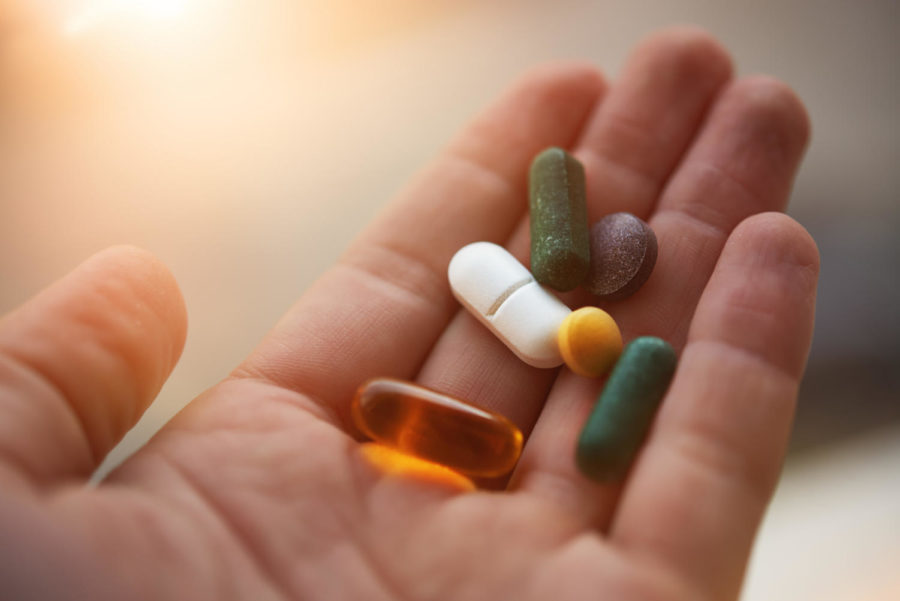- App Content
- App Content / Lifestyle
- App Content / News
- App Content / Quickies
- Lifestyle
- Living
- Quickies
- Self
What do vitamins do for you?
Could vitamin injections be a good alternative to capsule vitamins you swallow?
February 2, 2017
While we all know that vitamins are extremely important in our day-to-day lives, we may not know why they are good, and what benefits they are providing our bodies with.
According to bodybuilding.com, there are different types of vitamins, which people may not know. There are water-soluble vitamins and fat-soluble vitamins.
Water-Soluble vitamins dissolve in water, meaning these vitamins and nutrients dissolve quickly in the body. Water-soluble vitamins are carried to the body’s tissues, but the body cannot store them. Excess amounts of these vitamins are simply passed through the body, which means we need to make sure we are restoring them often.
-
Vitamin C – this vitamin also can be referred to as the “cold fighter.” This is a strong antioxidant known for strengthening the immune system by fighting off colds and other diseases.
Where to get Vitamin C: Many strong fruits and vegetables have plenty of Vitamin C in them. Some of the best options are strawberries, broccoli and red peppers. Just two cups will fill your daily requirement.
-
Folic Acid/(Vitamin B9) – This vitamin supports nervous system functions, as well as repairing DNA damaged through toxins, and helps in the production of blood cells.
Where to get Vitamin B9: With just one cup a day, pinto beans, lentils, spinach or asparagus can do true wonders for the body.
-
Niacin/(Vitamin B3) – This is an underrated, yet vital vitamin to make sure you are incorporating in your diet. It is essential for converting food into energy for your body to use. It also helps promote healthy hair, skin and nails.
Where to get Vitamin B3: The easiest way to get this vitamin is through either chicken or turkey breast, as well as tuna.
While there are many other water-soluble vitamins, these are a few of the most important. Others include Vitamin B1 (Thiamine), Vitamin B2 (Riboflavin), Biotin and Vitamin B6 (Pyridoxine).
The next category of vitamins is the fat-soluble category. Fat-soluble vitamins are absorbed through fat globules that travel through the small intestines in the body. Unlike the water-soluble vitamins, these vitamins are able to be stored in the body when they are not in use.
Only small amounts of these vitamins are needed to make a big difference in the health of your body, but they are extremely important.
-
Vitamin D – Otherwise known as the “sunshine” vitamin. This vitamin supports heart health, good blood sugar levels and helps your body absorb calcium correctly.
Where to get Vitamin D: The easiest way is through sunlight. You can also get it through shrimp, salmon and various assortments of fish.
-
Vitamin K – While many people don’t even know this is a vitamin, it is essential for helping your body with its blood clotting capabilities. It also builds strong bones and a healthy cardiovascular system.
Where to get Vitamin K: Kale, spinach, broccoli and lettuce. Just one cup a day can tremendously help.
-
Vitamin A – This vitamin helps insure a good vision and healthy immune system. This also plays a big role in bone growth, so it is essential in people our age.
Where to get Vitamin A: It is found most often in sweet potatoes and carrots. Incorporating a cup or two in your daily diet will get you on your way to strong bones and a healthy overall immune system.
These vitamins play an extremely important role in making sure your body runs healthy and correctly, so adding these to your diet is essential.







